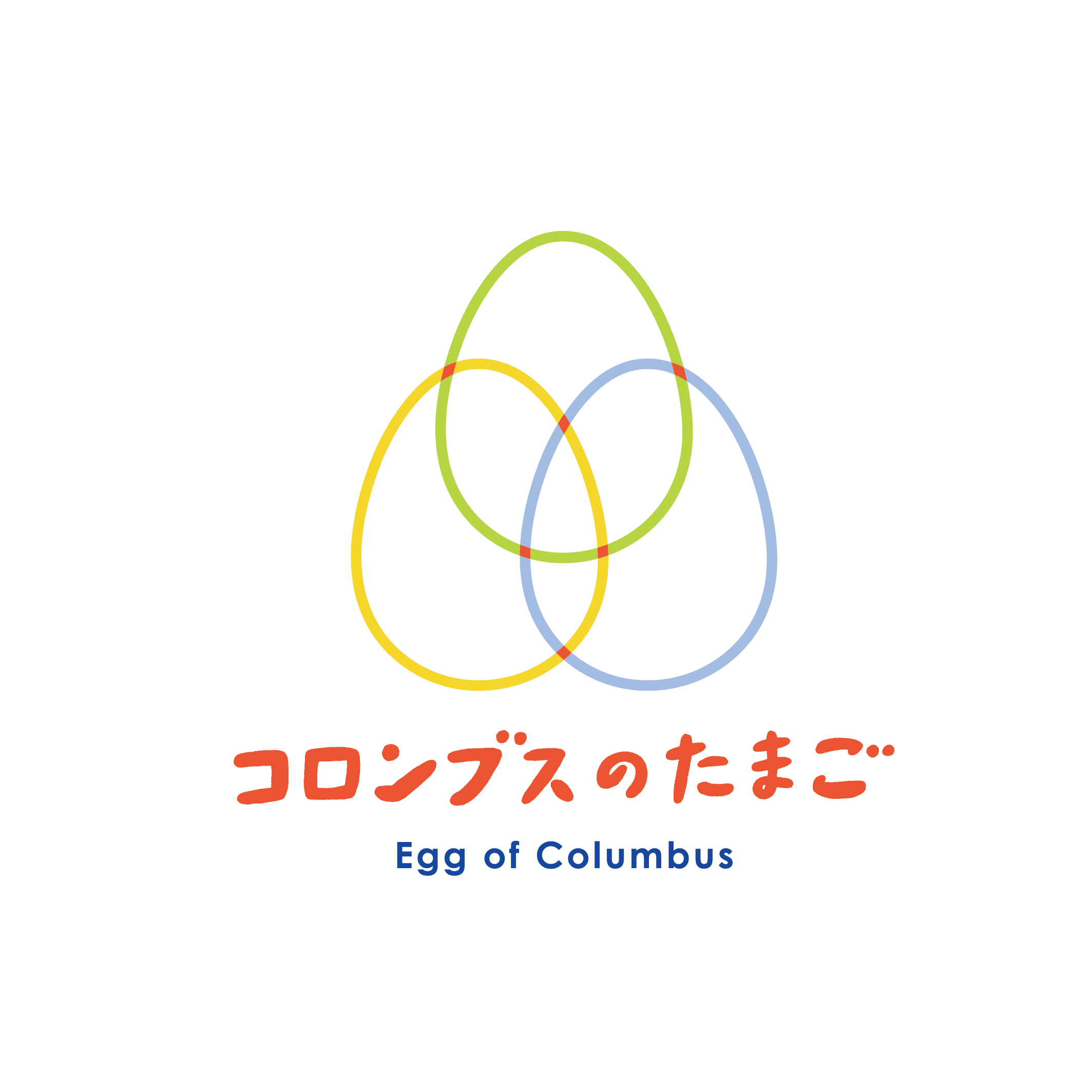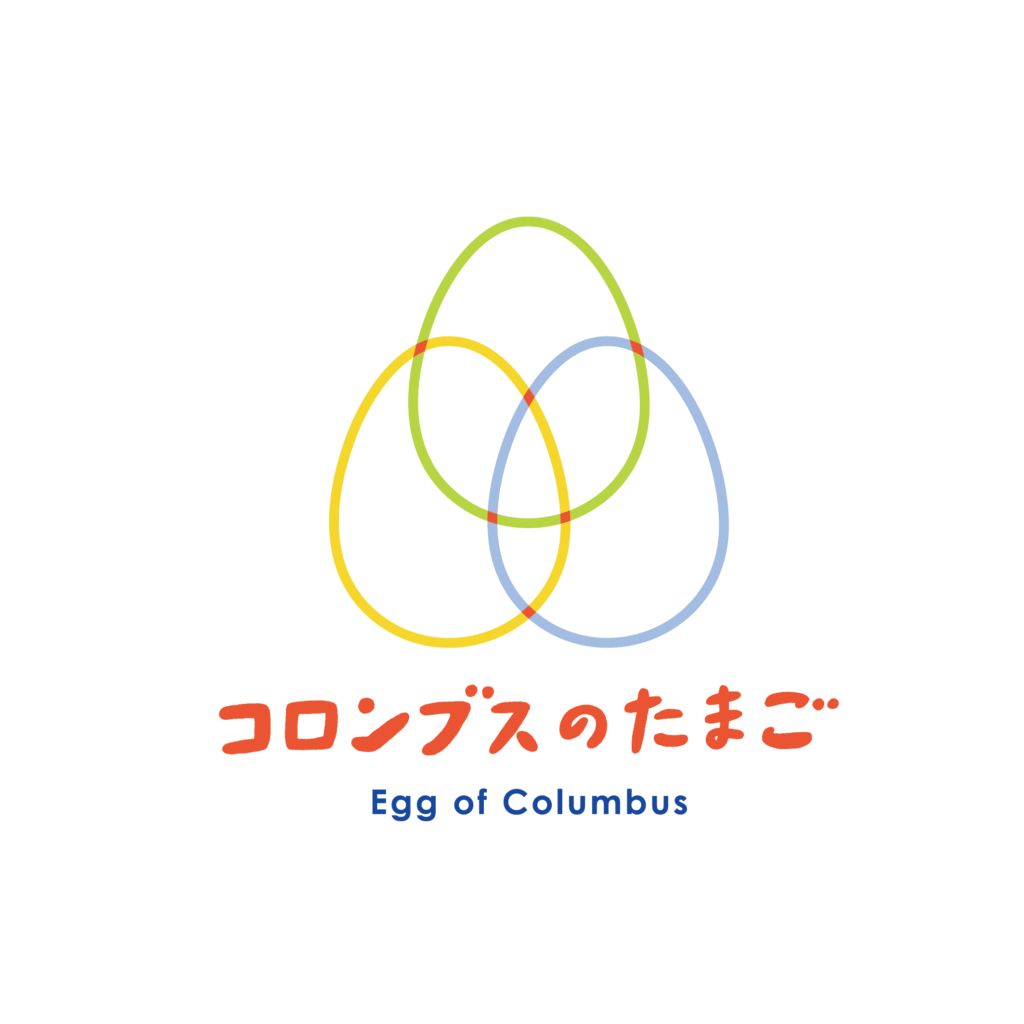
We are conducting a proof-of-concept project for “Egg of Columbus” (or コロンブスのたまご) a solution that leverages AI systems to connect the poultry industry with people with disabilities—simultaneously addressing challenges faced by both sectors.
This system uses AI technology to detect dirt and cracks on eggs as they move along a conveyor belt, and employs projection mapping to visually indicate which eggs should be removed.
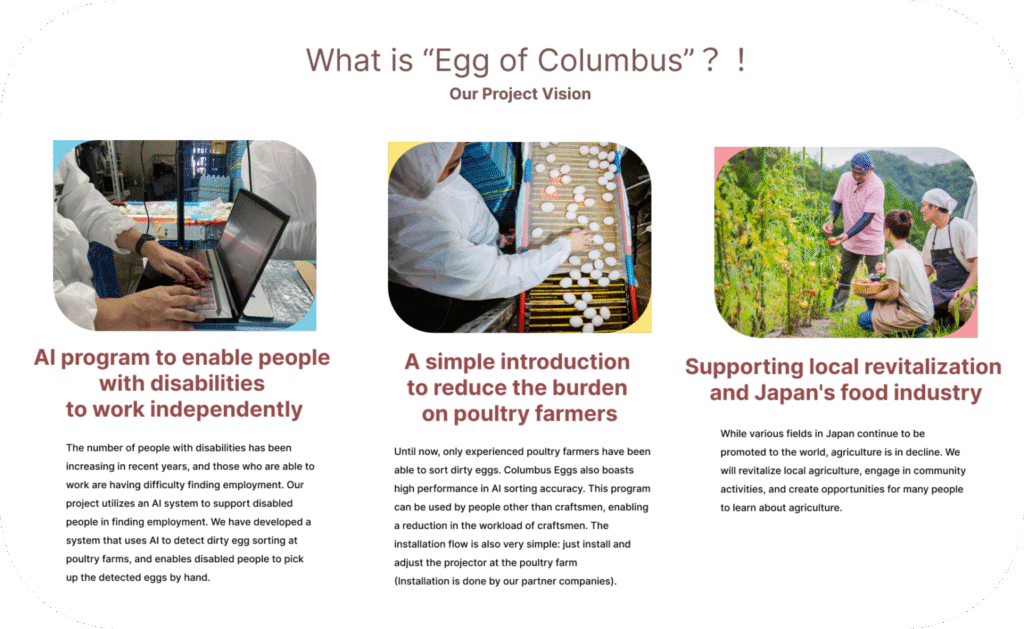
Challenges in the Poultry Industry
At poultry farms, each egg must be visually inspected by hand before shipment to detect dirt or cracks. However, accurately identifying defects requires experience, and the criteria for judgment can vary from person to person—or even for the same person depending on their condition.
If contaminated or damaged eggs are missed at this stage, they are re-inspected and removed at the next step: the GP Center (Grading and Packing Center). However, frequent oversight increases the workload at the GP Center and may affect trading prices, putting financial pressure on egg producers.
In addition, the labor shortage caused by the aging workforce is becoming a serious issue in recent years.
Japan’s egg self-sufficiency rate is approximately 97%, and due to the fragile and perishable nature of eggs, imports are extremely difficult. Therefore, the labor shortage in the egg industry is not just a problem for producers—it poses a potential risk to the stability of our entire food supply.
About “Egg of Columbus” (or コロンブスのたまご)
To address these challenges, we have developed “Egg of Columbus” (or コロンブスのたまご) —an AI-powered system that detects dirt and cracks on eggs as they move along a conveyor belt, and uses projection mapping to visually indicate which eggs should be removed.
By eliminating the need for manual inspection of each egg, the system not only standardizes the quality criteria across workers, but also reduces oversight and improves detection accuracy.
This increase in accuracy is estimated to boost profit margins by approximately 10%.
Furthermore, because “Egg of Columbus” (or コロンブスのたまご) enables even untrained personnel to perform the sorting process, it holds the potential to create employment opportunities for people with disabilities who may face barriers to traditional work environments.
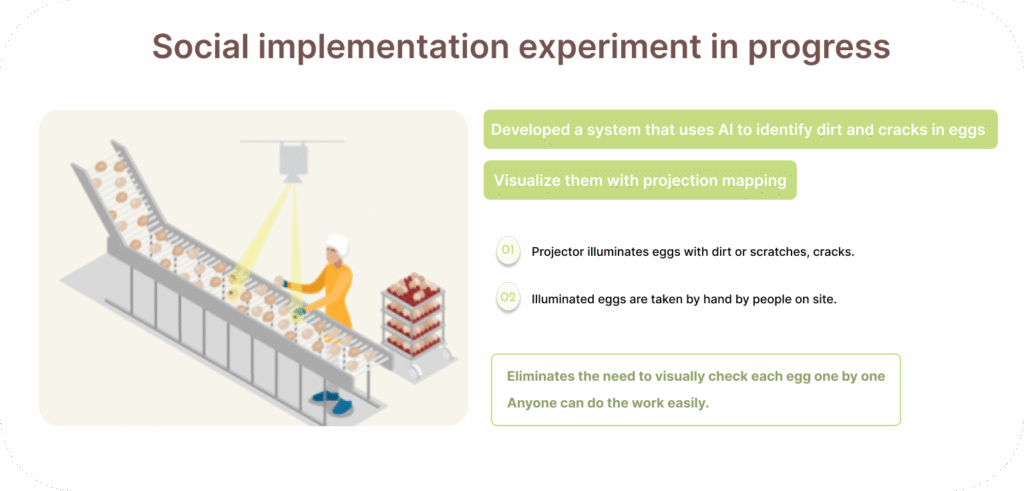
Promoting Employment for People with Disabilities
According to a survey conducted in 2022, the number of people with disabilities employed in the private sector in Japan reached a record high of approximately 610,000.
However, only about 48% of companies have met the legally mandated employment rate for persons with disabilities as stipulated by the Act on Employment Promotion, etc. of Persons with Disabilities, indicating that there is still significant room for improvement.
One major reason for the slow progress in disability employment is the limited range of tasks that individuals with disabilities can perform, depending on the nature of their disability.
With “Columbus’s Egg,” however, anyone—regardless of physical or cognitive ability—can easily take part in egg inspection work.
Another issue in disability employment is the high turnover rate. Key contributing factors include low wages, poor working conditions, and job mismatch.
By utilizing “Egg of Columbus” (or コロンブスのたまご) workers with disabilities can be engaged in a task that even able-bodied workers find demanding and precise, making it possible to offer competitive wages and meaningful work that leads to higher job satisfaction and retention.
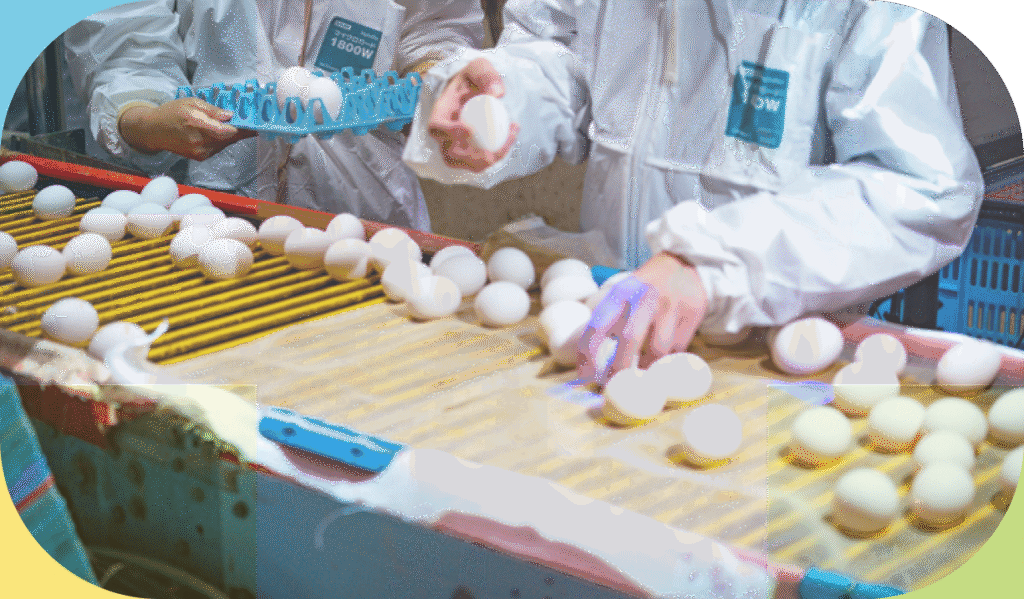
Participants with disabilities in the proof-of-concept trial shared positive feedback about the nature of the work:
“I enjoy being able to think and come up with my own ways to improve how I work. It was difficult at first, but I could tell I was getting better, and that made me happy.”
“Most of my usual jobs involve sitting and doing the same tasks repeatedly. It feels great to be on my feet and move my body while working.”
These responses highlight how engaging and fulfilling work can motivate individuals to continue working with a sense of purpose and pride.
By simultaneously addressing labor shortages in agriculture and promoting sustainable employment for people with disabilities,
this initiative fosters collaboration between the agricultural and welfare sectors.
Through mutual support and shared growth, we move toward building a sustainable and inclusive society.
Web Site https://columbus-no-tamago.site/en
PRTIMES(Japanese Article) https://prtimes.jp/main/html/rd/p/000000001.000132081.html


